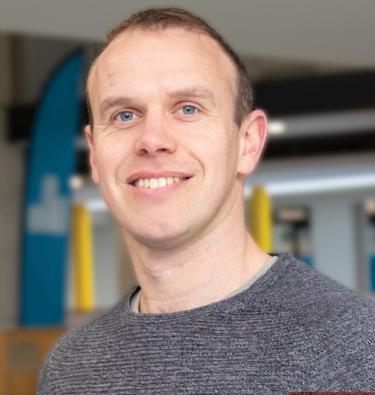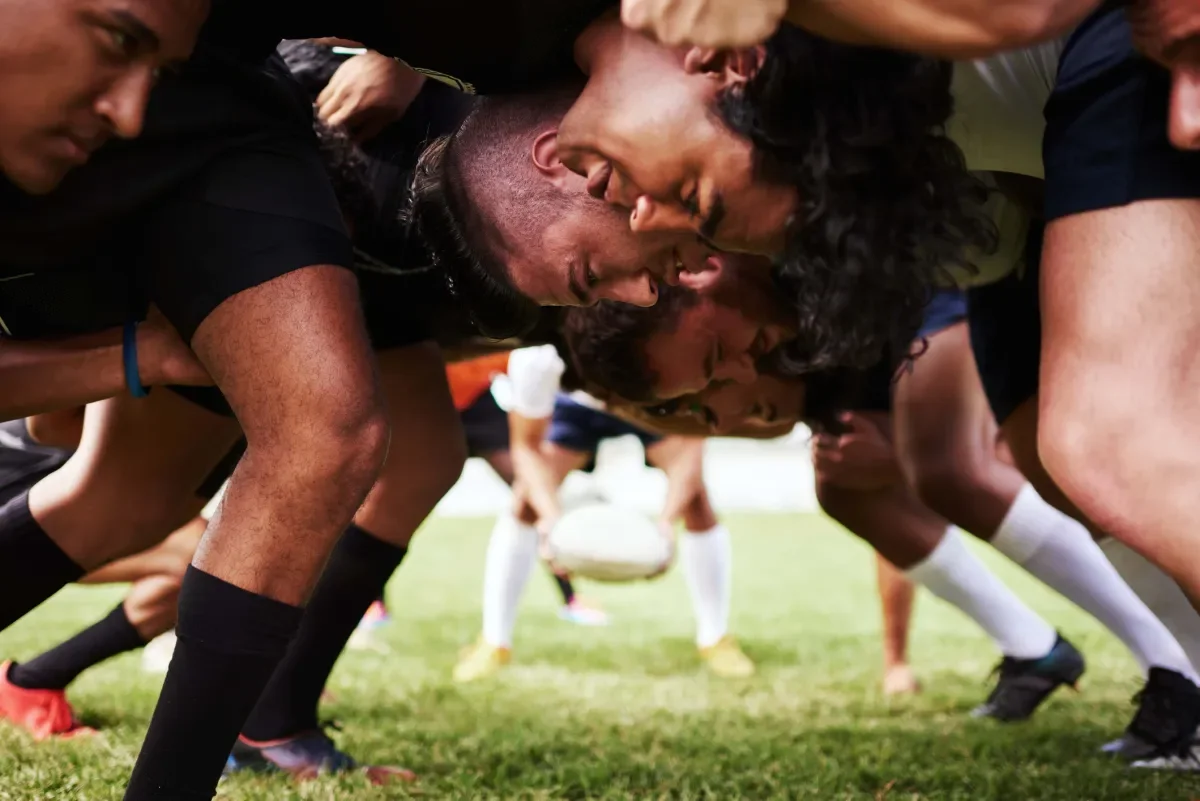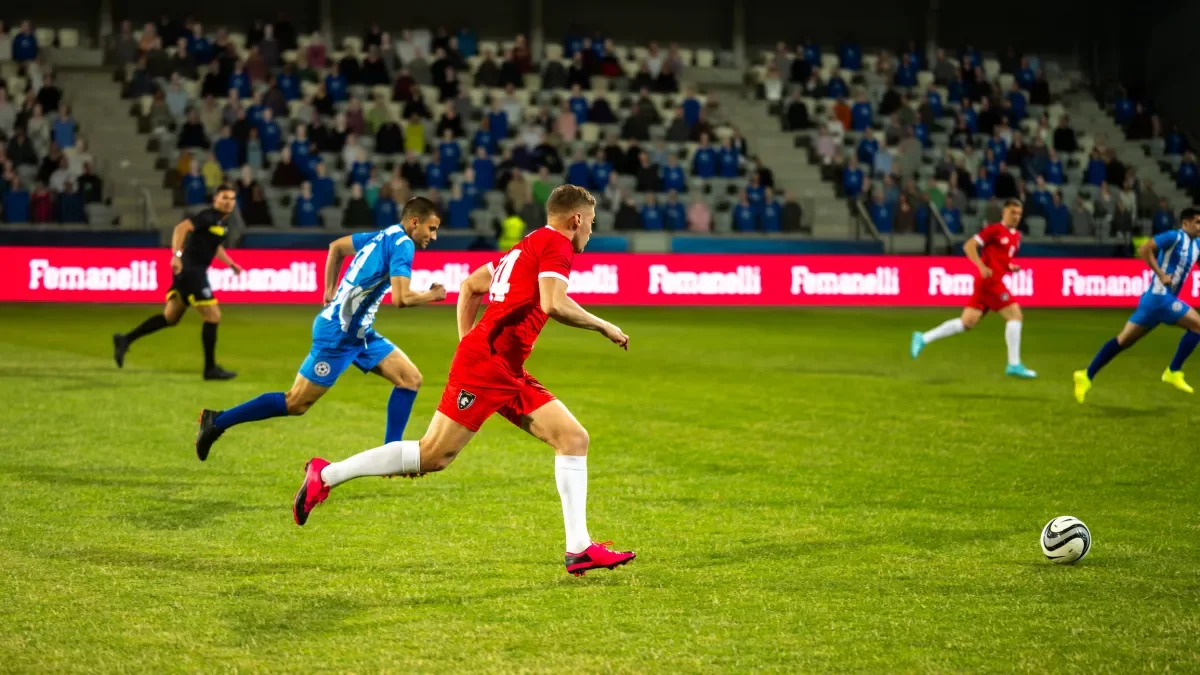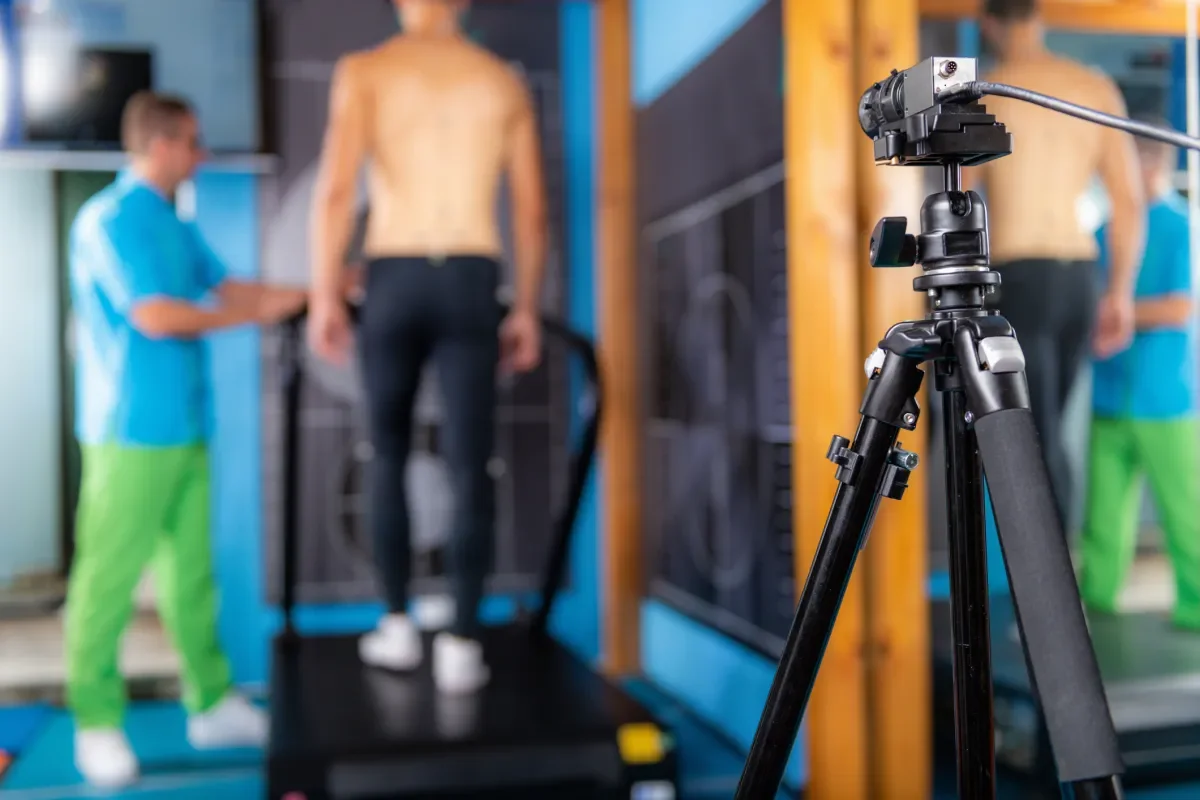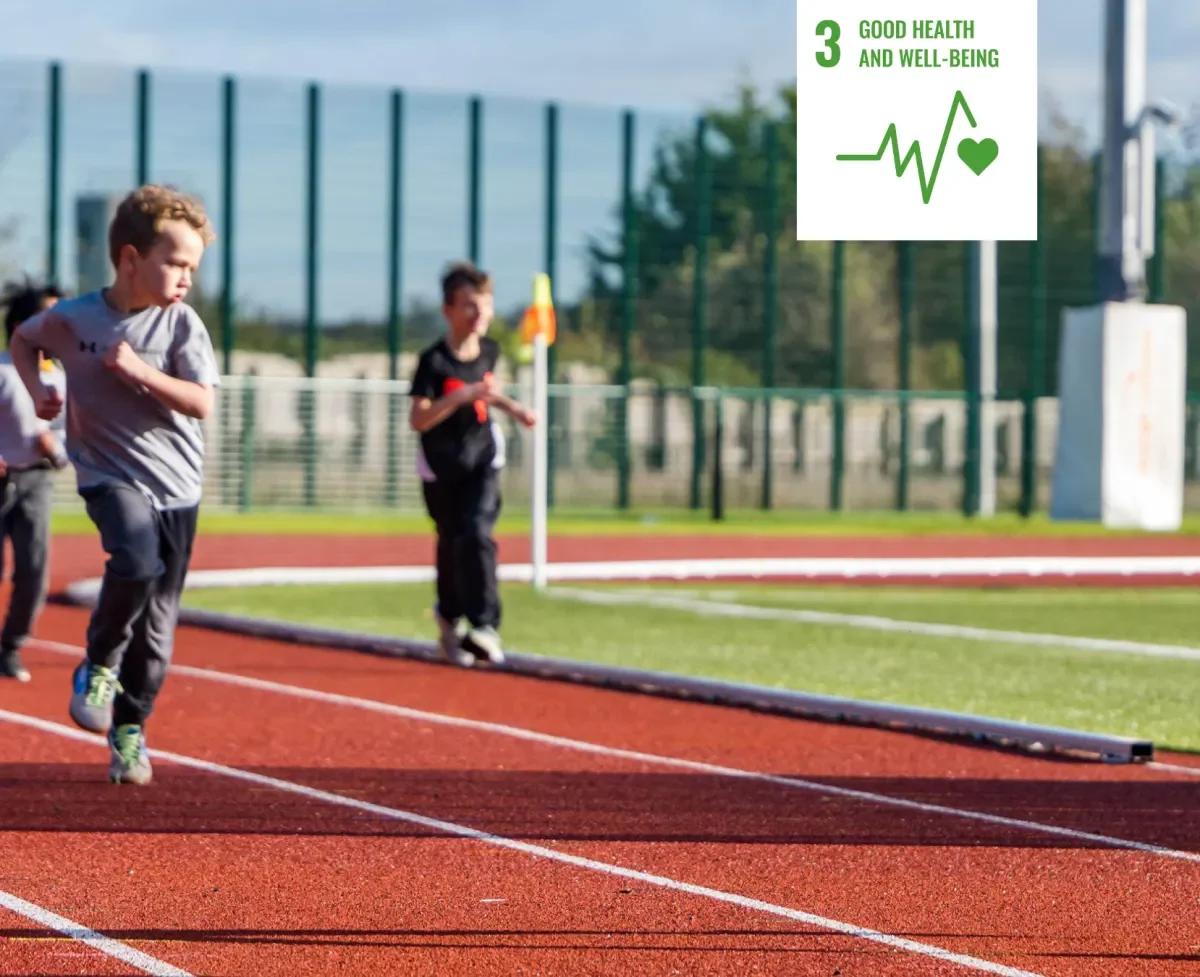
Physical inactivity is on the rise, with Ireland predicted to be the most obese nation in Europe by 2030. Researchers at Dublin City University have made put this issue at the heart of an innovative, multi-disciplinary project.
The latest Irish research shows only 17% of primary school aged children get the recommended 60 minutes of moderate to vigorous physical activity per day. An increasingly sedentary lifestyle amongst children has a host of negative health implications, including an increased risk of type 2 diabetes, cardiovascular disease, and obesity.
In light of previous public health initiatives failing, a fresh approach is needed. The research is clear, Irish children are moving less, and as such are opening themselves up to increased risk of negative health impacts later in life.
The icon on this article reflects the research's contribution to UN Sustainable Development Goal 3: Good Health and Wellbeing. The Sustainable Development Goals are 17 objectives designed by the United Nations to serve as a shared blueprint for peace and prosperity for people and the planet.
Motivation to move
The Moving Well-Being Well project aims to investigate why children wish to be active and looks at the underlying factors which motivate them to move. Using this holistic approach, the team assessed Irish children's physical literacy, and all the components associated with an active lifestyle. Physical literacy is defined as ‘the motivation, confidence, physical competence, knowledge and understanding to take responsibility to be active for life.’ By assessing all of these factors in over 2,100 children, the team were able to give a representative snapshot of Irish primary school children.
The second phase of MWBW sought to make a change in participating primary schools. Through rigorous analysis of the initial data collection, an intervention was developed and piloted in over 30 schools in Dublin. GAA coaches led the intervention on the ground, while the program also included teacher upskilling, in-class activity, and home activities for parents.
Positive impact
The results were extremely positive, with children’s movement competence and confidence both increasing significantly over a relatively short period of time. In an even more promising development: when the team followed up on these results 6 months later, the children had retained these improvements, suggesting that the intervention could have a lasting impact.
The feedback from the coaches and teachers involved was even more striking. Teachers received training in their own environment. Crucially, sessions took place in their school hall/yard and with their own equipment. This collaborative method empowers the schools and communities to continue to develop children's physical literacy long after the intervention has finished. This creates a sustainable culture in which continuous improvements can be made.
Country specific intervention
The large sample size of Irish children allowed us to design the research around relevant evidence for an Irish context. This is important as we have seen the ‘copy and paste’ approach fail time and time again: an intervention working in another country doesn’t mean it will work in an Irish context.
While the pandemic put a halt to much of the research, the MWBW team continued to innovate and launched a series of Movement Activity break videos. These are age appropriate and developmentally sound and evidence based. They can be used in the classroom or at home. These open resources have been warmly received, with over 70,000 views to date.
Data analysis
The project’s latest phase has been awarded funding through the Department of Justice’s Community Safety Innovation Fund. Tasked with intervening early in life, the team are actively delivering the MWBW intervention in the most disadvantaged of communities throughout Ireland.
More recently the team used five machine learning algorithms to predict future health and well-being in children with an accuracy of up to 87%. This all-DCU collaboration between the School of Computing and the INSIGHT Centre for Data Analytics utilises these algorithms to examine the same key physical competencies. The team recognised that modern machine learning research techniques could add a crucial new dimension to existing research.
This new method of analysis allowed for detailed analysis of health outcomes in multiple sub-groups, including age, gender and socio-economic background. Further research measuring data against these factors could inform public health policy.
Strong relationships
The project has strived to engage all stakeholders at all stages. It has built upon existing relationships between the university and the GAA, and engaged with thousands of children across the country. The aim is still simple, get Ireland's children moving at a societal level, and in doing so, impact their lives through positive health outcomes. We want to impact children’s lives early and provide them with the tools they need to be active for life.
The project is a collaboration between DCU’s School of Health and Human Performance, the Insight SFI Research Centre for Data Analytics, the GAA, and Dublin GAA.
Behan, S., Belton, S., Peers, C., O’Connor, N. E., & Issartel, J. (2019). Moving Well-Being Well: Investigating the maturation of fundamental movement skill proficiency across sex in Irish children aged five to twelve. Journal of sports sciences, 37(22), 2604-2612. https://doi.org/10.1080/02640414.2019.1651144 - 58 citations

